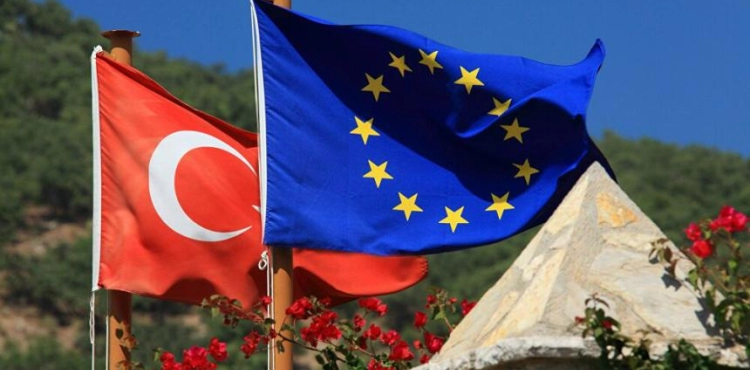The European Union will decide, today, Thursday, to put Ankara under surveillance until June, to express its rejection of the deterioration of rights and freedoms in Turkey, despite the promises of President Recep Tayyip Erdogan in this regard.
The Europeans want to normalize relations with Turkey after a year of tensions, but they will take a "gradual, conditional and can return" move, as European Council President Charles Michel announced in the invitation letter to the European summit.
For his part, European Union Foreign Minister Josep Borrell said Thursday upon his arrival at the summit to present a report reviewing the available options, "We have seen positive developments from Turkey, but the situation is still fragile."
"The discussions will not be easy, but I hope that we will achieve a result," German Chancellor Angela Merkel said, Thursday, to German lawmakers.
Due to the wave of new cases of Covid-19, the meeting will be held Thursday and Friday via videoconference, a format that does not allow for discussions.
Discussions about Russia were canceled for this reason and turned into a "briefing", where Charles Michel will inform the assembled members of his recent contacts with Russian President Vladimir Putin, who denounced the "controversial" position of the European Union with Moscow.
A European diplomat said that decisions on Turkey were postponed until June, adding that the second day of the summit, Friday, would be brief.
The participation of US President Joe Biden in the summit will enable the delivery of a joint firm message about the Turkish president.
During his talks Tuesday and Wednesday in NATO, Foreign Minister Anthony Blinken declared that "it is no longer a secret that anyone has differences with Turkey."
But Americans and Europeans alike refuse to cut bridges with Ankara. "Turkey is an old and valuable ally, and we have a great interest in preserving it within NATO," Blinken said.
For his part, Italian Prime Minister Mario Draghi summarized the European position by stressing "the importance of avoiding initiatives that create division and the need to respect human rights."
The Turkish president´s decision to withdraw from the Istanbul Convention for the Prevention of Violence against Women, following talks with Charles Michel and European Commission President Ursula von der Leyen, was considered a slap.
European Foreign Minister Josep Borrell warned that the recent decisions of the Turkish authorities "increase the concerns of the European Union about the decline of basic rights and undermine the credibility of the commitment to reform."
Diplomats assert that the Europeans do not trust the Turkish president because he does not respect his commitments and they see a lot of opportunism in his declared desire to calm down.
"We notice that there have been no negative signs since the beginning of the year, but no one is naive because several factors explain this behavior: the change of the president in the United States, the fragility of the Turkish economy and the repercussions of possible European sanctions," a European diplomat told AFP.
Another high-ranking diplomat commented that "the outcome is mixed. We cannot say that Turkey makes it easy for the European Union to go into the positive action program that we talked about. We are in a position of anticipation."
A diplomat said that the draft declarations for the summit were discussed until the last minute to reach a consensus, as Cyprus and Greece considered that it contained "a lot of incentives, but not enough conditions."
This could lead to disappointment for Erdogan, who said he was "waiting for concrete results" in response to his desire to normalize relations with the European Union.
"There will be intense vigilance in the coming months to determine in June whether the conditions are in place" for the normalization of relations, the diplomat said.
"If a retreat is observed, the European Union will be able to defend its interests. The tools are ready," he added.
Josep Borrell´s report indicates several options, including sanctions against the tourism sector.












